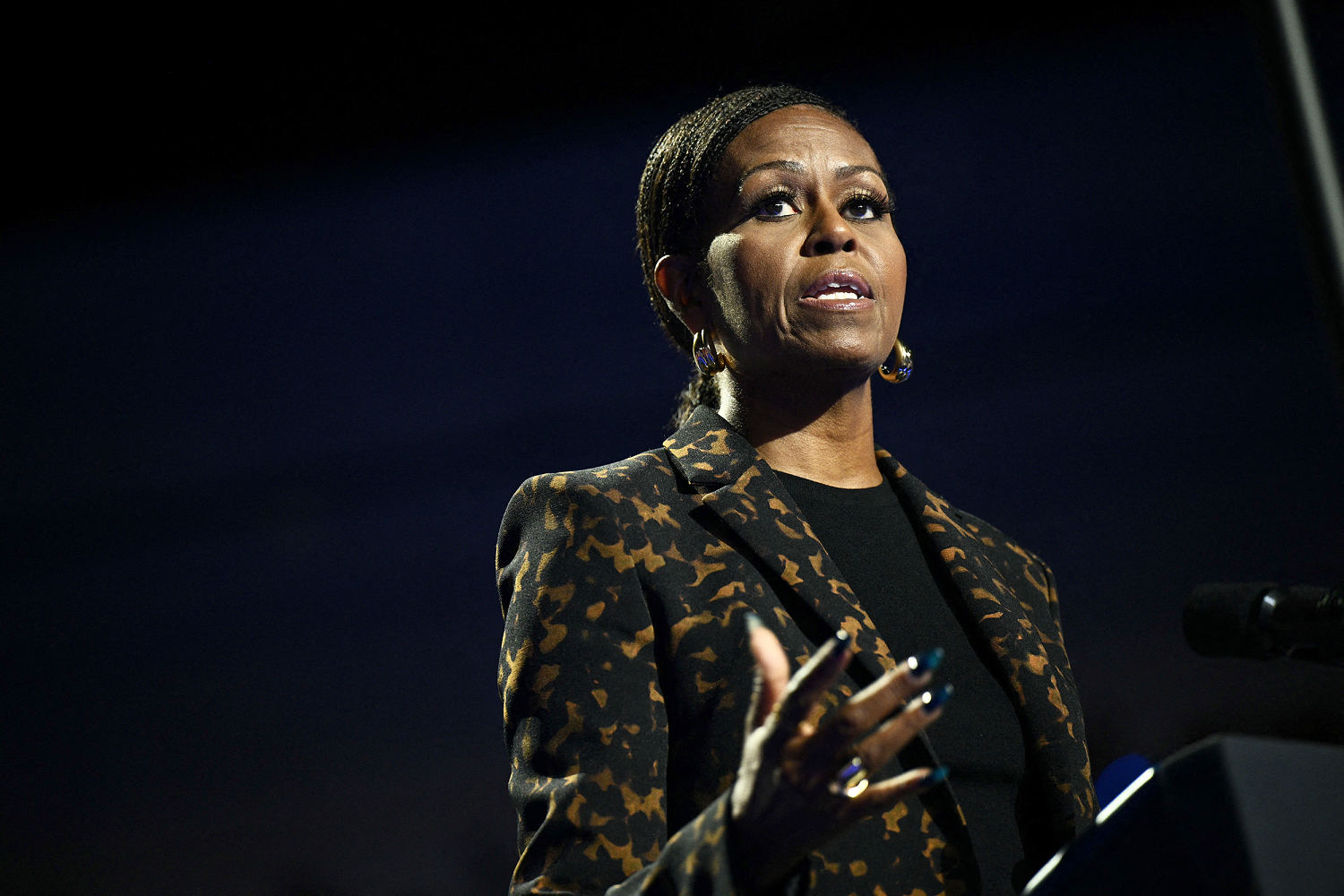
This summer, the two of us simply could not remain silent when a newly viral podcast clip from 2020 appeared to show JD Vance agreeing with host Eric Weinstein’s assertion that “the whole purpose of the postmenopausal female” is to help raise children. Vance denied he was undermining the autonomy of older women and accused the media of “dishonestly putting words” in his mouth, but the GOPs rhetoric in the ensuing days and weeks has only gotten worse.
A lot of this misogyny has related to menstruation and menopause — health care topics that are still viewed as unserious or, worse, gross and unseemly. Ohio Republican Senate nominee Bernie Moreno remarked that it’s “a little crazy” that women past 50 would vote on the issue of reproductive rights. And puerile jokes denigrating Tim Walz’s push to provide free menstrual products in Minnesota public school restrooms resulted in chants of “Tampon Tim” filling Madison Square Garden at the Donald Trump rally on Sunday night.
The Harris campaign, for its part, has mostly steered clear of responding to the swipes and jibes, presumably deeming them a distraction or too low a bar to acknowledge. That’s an understandable instinct. But thankfully, Michelle Obama is more than willing to tackle this incredibly important subject head on — and right now. On Saturday night at a rally in Kalamazoo, Michigan, she gave the granular response we have been hoping for. In an impassioned speech that spent more than 15 minutes on reproductive health, she spoke candidly about parts of our bodies that too often get lost to shame or left to innuendo.
“A women’s body is complicated business, y’all,” she told the crowd. “It brings life — and that is a beautiful thing — but even when we are not bearing children there is so much that can go wrong at any moment.”
Obama also called out the struggles that too many suffer in silence, from menstrual pain to unexpected breast lumps, to the “other end of the reproductive timeline,” when many women “have no idea what is going on … as we battle through menopause.”
While some in the media have (correctly) characterized Obama’s remarks as a “searing appeal to men” — a plea for awareness of what the women in their lives regularly endure and take pains to keep private — we saw something even more strategic. Yes, she was directly addressing husbands, fathers and sons. But for the women in the crowd, there was cathartic value as well. Obama wasn’t just recognizing these women; she was also connecting the dots from periods to pregnancy to post-menopause.
Here, finally, is the ultimate rejection of everything the GOP’s “Tampon Tim” insult represents. Our periods are not fodder for Republican punchlines, nor is anything else about the complexity of our reproductive lives. We know that if men endured what women go through when it comes to health care, choices would likely be wide open — and care much more freely available.
Back in August, we felt compelled to write about why older women have a stake in civic life and political representation beyond cartoonish or caricatured depictions of our post-menopausal existence. But now, a week until Election Day, we hope Michelle Obama has sparked a movement where the Harris campaign — and all of us — will be bolder and more forthright.
By focusing squarely on support for reproductive rights — through a mix of poignant testimonials and star-studded rallies, including with Beyoncé in her hometown of Houston this weekend — Kamala Harris has committed to shining a spotlight on the voices of women and stories of families affected by abortion bans. While we appreciate the proactive approach and understand the need in a closely fought election to focus on persuadable voters, we hope Harris will not sidestep these other health care topics if she is the next president of the United States.
Like Obama, we should all commit to speaking truth to power and not sanitizing our everyday existence. Let’s use words like “cramps” and “hot flashes” and “menopause.” Let’s find ways to show women, especially older women, that they are respected and valued in a culture that has spent too many decades trying to brush them aside. Rejecting the polite euphemisms used to gloss over real medical issues is a start.
By threading the needle between the bloody mechanics of our bodies and bloodier attacks on our bodily autonomy, we can expose the seam that connects those issues. For all women, no matter our age or life stage — and for “the men who love us” — abortion rights are already a national five-alarm fire. If women are forced to go backward, everyone suffers. That’s the real issue here.
Abortion is on the line, but the massive iceberg beneath it includes women’s individual and collective health and dignity. That’s something worth fighting for.
